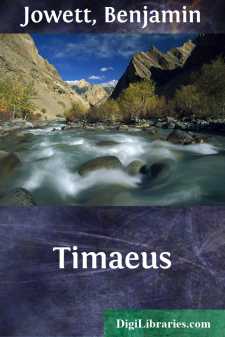Categories
- Antiques & Collectibles 13
- Architecture 36
- Art 48
- Bibles 22
- Biography & Autobiography 813
- Body, Mind & Spirit 142
- Business & Economics 28
- Children's Books 15
- Children's Fiction 12
- Computers 4
- Cooking 94
- Crafts & Hobbies 4
- Drama 346
- Education 46
- Family & Relationships 57
- Fiction 11829
- Games 19
- Gardening 17
- Health & Fitness 34
- History 1377
- House & Home 1
- Humor 147
- Juvenile Fiction 1873
- Juvenile Nonfiction 202
- Language Arts & Disciplines 88
- Law 16
- Literary Collections 686
- Literary Criticism 179
- Mathematics 13
- Medical 41
- Music 40
- Nature 179
- Non-Classifiable 1768
- Performing Arts 7
- Periodicals 1453
- Philosophy 64
- Photography 2
- Poetry 896
- Political Science 203
- Psychology 42
- Reference 154
- Religion 513
- Science 126
- Self-Help 84
- Social Science 81
- Sports & Recreation 34
- Study Aids 3
- Technology & Engineering 59
- Transportation 23
- Travel 463
- True Crime 29
Phaedrus
by: Benjamin Jowett
Description:
Excerpt
INTRODUCTION.
The Phaedrus is closely connected with the Symposium, and may be regarded either as introducing or following it. The two Dialogues together contain the whole philosophy of Plato on the nature of love, which in the Republic and in the later writings of Plato is only introduced playfully or as a figure of speech. But in the Phaedrus and Symposium love and philosophy join hands, and one is an aspect of the other. The spiritual and emotional part is elevated into the ideal, to which in the Symposium mankind are described as looking forward, and which in the Phaedrus, as well as in the Phaedo, they are seeking to recover from a former state of existence. Whether the subject of the Dialogue is love or rhetoric, or the union of the two, or the relation of philosophy to love and to art in general, and to the human soul, will be hereafter considered. And perhaps we may arrive at some conclusion such as the following—that the dialogue is not strictly confined to a single subject, but passes from one to another with the natural freedom of conversation.
Phaedrus has been spending the morning with Lysias, the celebrated rhetorician, and is going to refresh himself by taking a walk outside the wall, when he is met by Socrates, who professes that he will not leave him until he has delivered up the speech with which Lysias has regaled him, and which he is carrying about in his mind, or more probably in a book hidden under his cloak, and is intending to study as he walks. The imputation is not denied, and the two agree to direct their steps out of the public way along the stream of the Ilissus towards a plane-tree which is seen in the distance. There, lying down amidst pleasant sounds and scents, they will read the speech of Lysias. The country is a novelty to Socrates, who never goes out of the town; and hence he is full of admiration for the beauties of nature, which he seems to be drinking in for the first time.
As they are on their way, Phaedrus asks the opinion of Socrates respecting the local tradition of Boreas and Oreithyia. Socrates, after a satirical allusion to the 'rationalizers' of his day, replies that he has no time for these 'nice' interpretations of mythology, and he pities anyone who has. When you once begin there is no end of them, and they spring from an uncritical philosophy after all. 'The proper study of mankind is man;' and he is a far more complex and wonderful being than the serpent Typho. Socrates as yet does not know himself; and why should he care to know about unearthly monsters? Engaged in such conversation, they arrive at the plane-tree; when they have found a convenient resting-place, Phaedrus pulls out the speech and reads:—
The speech consists of a foolish paradox which is to the effect that the non-lover ought to be accepted rather than the lover—because he is more rational, more agreeable, more enduring, less suspicious, less hurtful, less boastful, less engrossing, and because there are more of them, and for a great many other reasons which are equally unmeaning....












